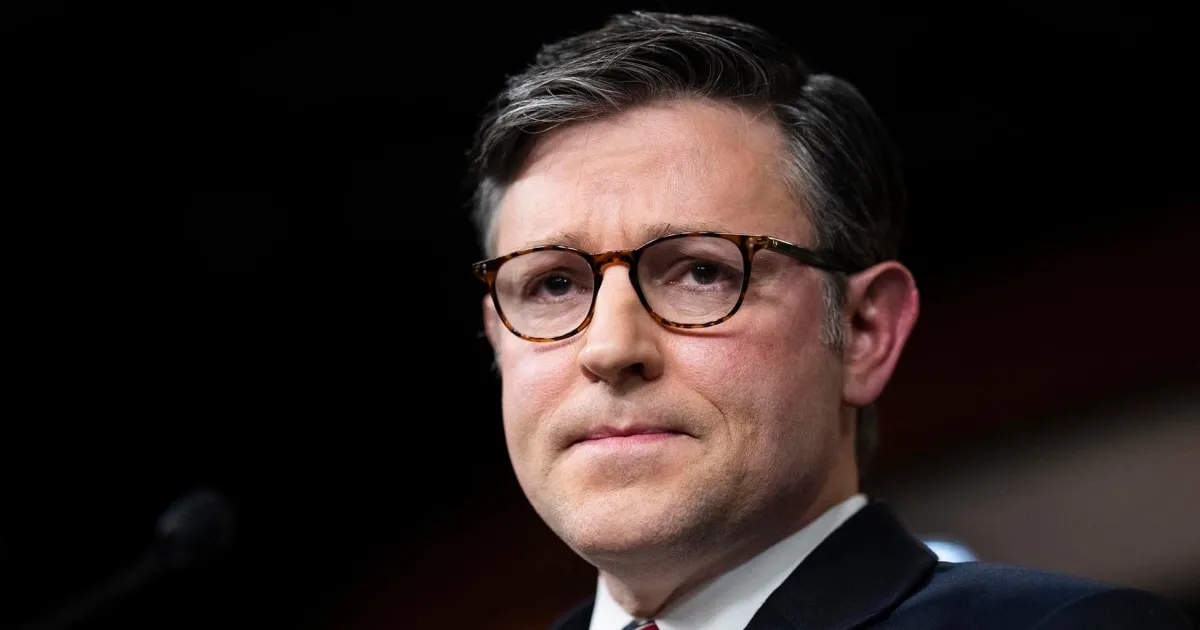
As Republicans embark on the critical task of shaping legislation for President Donald Trump’s ambitious domestic policy agenda, they are already encountering significant obstacles. Fresh from a two-week recess, House committees have commenced the markup process for their respective components of the proposed package, which aims to extend Trump’s 2017 tax cuts, increase funding for immigration enforcement and the military, and raise the debt ceiling.
In their quest for substantial savings to finance these initiatives, Republicans are starting with some of the most straightforward options for spending cuts. However, this approach has already ignited disputes among Republican lawmakers, foreshadowing larger intraparty conflicts that lie ahead. A critical point of contention will be the potential reduction of funding for anti-poverty programs like Medicaid.
Rep. Sam Graves, R-Mo., the chair of the House Transportation and Infrastructure Committee, found himself in a challenging position when he had to retract a provision that proposed a new $20 annual fee on nearly all passenger vehicles. This decision came after a backlash from conservative members of the party. In a separate incident within the Judiciary Committee, Rep. Darrell Issa, R-Calif., faced defeat when his proposal for a “gold card” visa aimed at wealthy foreigners was dismissed by conservatives wary of expanding visa programs.
Meanwhile, on the Education and Workforce Committee, Chairman Tim Walberg, R-Mich., advanced a significant overhaul of student loan programs designed to cut $351 billion in federal spending. This overhaul has drawn criticism from Democrats, especially due to a controversial “risk-sharing” provision that would hold colleges and universities partially accountable for unpaid student loan balances.
“All the committees are making tough decisions, and we’re gonna build this bill,” stated Rep. August Pfluger, R-Texas, the chairman of the Republican Study Committee, the largest conservative caucus in Congress. Following the recent passage of their budget framework for Trump’s “one big beautiful bill,” House Republicans are now working diligently to finalize the details.
Speaker Mike Johnson, R-La., has expressed optimism that the House can unite these various components and present the package to the Senate by Memorial Day — a goal that, while ambitious, remains feasible. This timeline necessitates that Republican leaders, committee chairs, and rank-and-file members engage in complex discussions about the bill’s funding and potential cuts, especially given the party’s narrow majority of 220-213.
One of the most challenging issues still to be addressed is how to approach potential Medicaid cuts. Moderate and vulnerable Republicans have voiced strong opposition to any reductions in this program. The Energy and Commerce Committee, responsible for overseeing Medicaid and tasked with identifying a staggering $880 billion in cuts for the bill, is scheduled to hold a markup session on May 7. The committee's chairman has been consulting with members across the ideological spectrum to seek a viable solution.
Even seemingly minor issues can derail progress. The proposed vehicle fee serves as a case in point. Graves initially included the fee to comply with reconciliation instructions, which dictate spending requirements for each committee. However, after gauging support, it became clear that opposition was overwhelming, leading Graves to withdraw the provision. As a result, the committee had to explore alternative strategies to achieve its savings goals.
Now, the package will increase the annual fee for electric vehicles from $200 to $250 and reduce funding for air traffic control modernization from $15 billion to $12.5 billion.
Another point of contention arose in the Judiciary Committee regarding visa programs. Issa had proposed a plan to introduce Trump’s concept of selling $5 million gold card visas to provide immigrants with legal permanent residency and a pathway to citizenship. He argued that this could generate at least $150 billion to fund the package. However, fellow committee member Rep. Chip Roy, R-Texas, blocked the proposal, citing concerns about expanding revenue through visas.
Despite these setbacks, a spokesperson indicated that Republicans may still revisit the gold card issue. "We are working closely with the White House and fully support President Trump's agenda," the spokesperson stated.
The discussions surrounding Medicaid and the state and local tax (SALT) deduction continue to be tumultuous. On Wednesday, Johnson held a meeting with Republicans from blue states who are advocating for a raised cap on the SALT deduction. The House Ways and Means Committee will address this issue in the coming week, although consensus remains elusive.
As Republicans prepare for the 2026 midterm elections, concerns persist regarding the feasibility of achieving their spending targets without imposing steep cuts to Medicaid. They have emphasized a focus on eliminating waste, fraud, and abuse within the Medicaid system.
“The idea of using Medicaid to assist able-bodied individuals who could be working is not something most Americans support,” remarked Sen. Lindsey Graham, R-S.C., chair of the Budget Committee. “Medicaid was created to assist those in poverty and the disabled. This is an opportunity for us to make necessary adjustments, and failure to do so could have significant repercussions.”